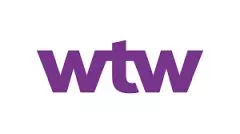- in United States
By introducing VAT on private school fees, Labour aims to generate additional revenue that could be reinvested into the state education system.
The first budget of Keir Stamer's government provided lots to unpack but one announcement perhaps shouldn't have come as a surprise – Private school fees were rooted to the Labour Party's election campaign and many will need help adapting their finances to meet the additional cost if they currently have, or plan to have, children in private education.
Currently, private schools in the UK benefit from charitable status, which exempts them from charging VAT on fees.
By introducing VAT on 1 January 2025 at the standard rate of 20% on private school fees, Labour aims to generate additional revenue that could be reinvested into the state education system.
The Labour manifesto estimates this policy could raise over £1.5 billion1 of funds that could be used to improve facilities, hire more teachers, and enhance educational resources in state schools.
Potential impact on private schools and families
The introduction of VAT on private school fees would undoubtedly have a significant impact on both the institutions and the families who use them. For many parents, the additional cost—potentially thousands of pounds per year—could make private education unaffordable. This could lead to a reduction in private school enrolments, with some students transferring to state schools, thereby increasing demand on the state sector.
Critics of the proposal argue that the policy could harm middle-income families who make significant financial sacrifices to afford private education. They also warn that an influx of students from private schools into the state system could overwhelm state schools, particularly in areas where state schools are already under pressure.
Practical tips: Funding private school fees
When it comes to securing a financial future for your children, there are a variety of savings and investment options available.
These options range from simple savings accounts to more complex investment vehicles, each with its own set of benefits and risks. Understanding these choices can help you make informed decisions that align with your financial goals and your child's future needs.
Key considerations in determining which structure can help you save for your child's school include:
- Tax treatment – how will the money held in the account be taxed? And who is responsible?
- Control and flexibility – when and how often will you require access to the account? Are you comfortable with your child gaining control over the account from age 18?
- Donor – who is making the gift into the selected account? This may have personal tax consequences as well as inheritance tax implication.
- Potential for growth – what extent do you want the money to grow? Are you comfortable with modest returns such as cash-based accounts? Are you concerned about the purchasing power of the money versus the expected annual increases to school fees?
Below, we share some of the common saving vehicles available which may help with funding your child's education and other saving needs. This is a guide only and suitability will depend on individual circumstances:
| Arrangement | Owner | Child gains control at 18 | Taxation | Cash-based or investment | Administration | Type of contribution | Maximum |
|---|---|---|---|---|---|---|---|
| Savings Account | Child | Yes | Child | Cash | Minimal | Regular or lump sum | N/A |
| NS&I - Premium bonds | Child | Yes | Exempt | Prize | None | Regular or lump sum | £50,0002 |
| Junior ISA | Child | Yes | Exempt | Cash or investment | None | Regular or lump sum | £9,0003 |
| General Investment Account | Parent | No | Parent | Cash or investment | Minimal | Regular or lump sum | N/A |
| Bare Trust | Trust | Yes | Child or Parent | Cash or investment | Consideration | Lump sum | N/A4 |
| Discretionary Trust | Trust | No | Trustee | Cash or investment | Consideration | Lump sum | £325,0005 |
The amount saved into an account for a child is considered a gift for inheritance purposes.
If amounts saved into an account for a child by their parent earns annual income of more than £100, the entire income as well as any gains realised will be taxable on the parent.
Footnotes
1. "Labour's fiscal plan."
2. Maximum amount that can be held in premium bonds per person.
3. Maximum annual contribution for 2024/25.
4. Contribution made will be considered a Potentially Exempt Transfer which could be subject to inheritance tax.
5. Maximum initial contribution that can be made per donor without triggering an immediate inheritance tax charge.
The content of this article is intended to provide a general guide to the subject matter. Specialist advice should be sought about your specific circumstances.


